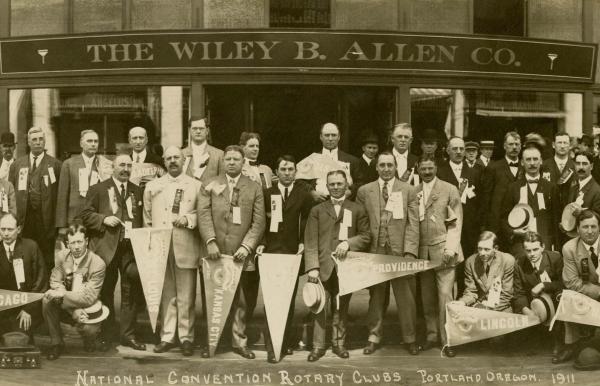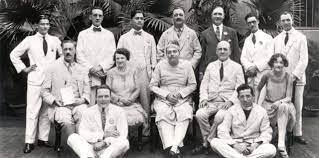History of Rotary
The Founding Years
(1905 - 1920)

Rotary International was founded on February 23, 1905, in Chicago, Illinois, by attorney Paul Harris. Alongside three business associates, Harris envisioned a club where professionals from different backgrounds could gather in the spirit of camaraderie and community service. The name "Rotary" was derived from the practice of rotating meeting locations among members' offices. As the idea gained traction, clubs were established across the United States, and by 1911, Rotary had expanded internationally with clubs in Canada, Ireland, and the United Kingdom.
Growth and Expansion
(1920 - 1950)

The 1920s and 1930s saw exponential growth, with Rotary clubs forming in numerous countries, making it a truly global organization. In 1922, the name officially became "Rotary International." Rotary clubs played a vital role in humanitarian efforts, particularly during the Great Depression and World War II, fostering peace initiatives and aiding war-affected communities.
Advancing Global Service (1950 - 1980)
During the mid-20th century, Rotary deepened its commitment to humanitarian projects, particularly in health, education, and peace. The establishment of The Rotary Foundation in 1947 marked a turning point, funding scholarships, community development programs, and medical research. In the 1970s, Rotary introduced large-scale initiatives, including the 3-H Program (Health, Hunger, and Humanity), setting the stage for future global service projects.
Polio Eradication and Beyond (1980 - 2000)
One of Rotary’s most significant contributions to global health began in 1985 with the launch of PolioPlus, a campaign to eradicate polio worldwide. Through partnerships with organizations like the World Health Organization (WHO) and UNICEF, Rotary has helped reduce polio cases by 99.9%. The 1990s also saw an emphasis on peace-building, with the creation of the Rotary Peace Fellowship program.
The Modern Era
(2000 - Present)
In the 21st century, Rotary continues to address pressing global issues such as clean water access, maternal and child health, disease prevention, and environmental sustainability. With over 1.4 million members in more than 46,000 clubs worldwide, Rotary remains a leading force in humanitarian service. Leveraging technology and strategic partnerships, Rotary continues to innovate in community service, leadership development, and global outreach.
Looking Ahead
As Rotary moves forward, its commitment to "Service Above Self" remains unwavering. Through dynamic programs, sustainable development efforts, and continued advocacy for world peace, Rotary International continues to make a lasting impact on communities worldwide.

